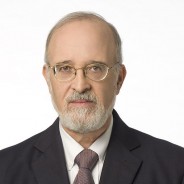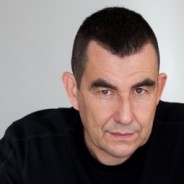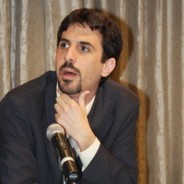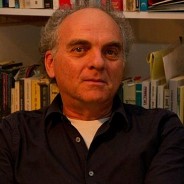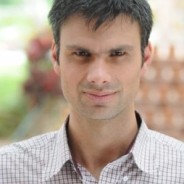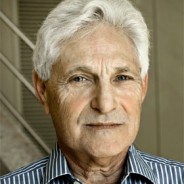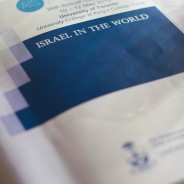Israel’s Security Challenges in a Changing Middle East – Isaac Ben-Israel
Professor Isaac Ben-Israel is an Israeli military scientist, general and ex-politician. He currently serves as the chairman of the Israeli Space Agency and the National Council for Research and Development, under the auspices of the Israel Ministry of Science and Technology. He finished his service in the IDF ranked General, serving as Director of Defence R&D of Israel MOD and IDF. Between 2010-2012 he served as chief Cybernetics adviser to PM Netanyahu, during which period he founded the National Cyber Bureau in the PM office and...
read moreThe Israeli Condition: 2014 – Ari Shavit
Ari Shavit is a leading Israeli columnist and writer. He is a senior correspondent at Ha’aretz newspaper and a member of its editorial board. In recent years, his voice has become one of the most powerful and influential voices in Israel’s public arena. His unique writing, which challenges the dogmas of both right and left, has made him one of the leading political thinkers of the Jewish state. His new book, My Promised Land, published by Random House this year. “A beautiful, mesmerizing, morally serious, and vexing book. I’ve been...
read moreBook Launch: Democracy and Conflict Resolution: The Dilemmas of Israel’s Peacekeeping – Oded Haklai
Miriam Fendius Elman is associate professor of political science at the Maxwell School, Syracuse University. Oded Haklai is associate professor of political studies at Queen’s University. Hendrik Spruyt is Norman Dwight Harris Professor of International Relations and director of the Buffett Center for International and Comparative Studies at Northwestern University. “Helman, Haklai, and Spruyt’s edited book is a major contribution to our understanding of domestic politics’ role in International Relations (IR), particularly democratic peace...
read morePolitical Concepts in the Israeli Hebrew Mind – Dan Avnon
Professor Dan Avnon is a political theorist from the Hebrew University of Jerusalem, Dan is currently the Grafstein Visiting Professor in Jewish Studies at the University of Toronto’s Centre for Jewish Studies. His publications in the past five years include edited books on Plurality and Citizenship in Israel, Civic Education in Israel, and a Hebrew version of his book Martin Buber: The Hidden Dialogue. This in addition to essays in general and Jewish political thought and studies related to democratic civic education and Israeli policies in...
read moreRecognition of the Other and Self-Constitution: Recognition Gaps of a Palestinian People and/or State in Israel Political Discourse – Elie Friedman
Elie Friedman is a research fellow at the Harry S. Truman Research Institute for the Advancement of Peace and a PhD candidate at the Department of Communication and Journalism at the Hebrew University of Jerusalem. His dissertation engages in a discourse analysis of Israeli political leaders’ presentation of the Israeli-Palestinian conflict in various political, geo-strategic, and ideological contexts and in changing media environments. In addition, Mr. Friedman’s research maps various typologies for the presentation of gaps...
read moreIsrael’s Strategic Environment – Mark A. Heller
Mark A. Heller is Principal Research Associate at the Institute for National Security Studies (formerly the Jaffee Center for Strategic Studies), Tel Aviv University and editor of its quarterly journal, Strategic Assessment. He received his B.A. in Political Science and Economics at the University of Toronto and did his graduate studies at Harvard University, where he earned an M.A. in Middle Eastern Studies and a Ph.D. in Political Science. He has been affiliated with the INSS/Jaffee Center since 1979 and has taught international relations...
read more26th Annual AIS Conference 2010
Since independence, Israel has lived with a paradox–needing and seeking legitimacy, understanding, and empathy from the world community while simultaneously also discounting the world, which David Ben Gurion articulated so succinctly with his “Um Shmum.” These tension-laden tendencies reflect not only strong cultural dispositions along with issues arising from Israel’s troubled birth, development, and existence, but also some of the deep ruptures in what it means to be Israeli in a globalizing world. We therefore aim to reflect upon...
read more
